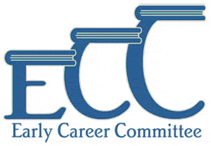
Rebecca Short, Assistant Editor at Delacorte/Random House Children’s Books | July 31, 2013
By Nicole Banholzer

What was your first job in children’s publishing? How did you come to editorial?
My first job in publishing was as an editorial assistant at Delacorte Press. I had been a senior philosophy major with the usual symptoms: feelings of disorientation and general doubt and confusion about the concept of making a living and how to accomplish this. Then it was suggested to me that I attend the Columbia Publishing Course, an intensive six-week introduction to the industry. I found the speakers who spoke at the course, among whom were Robert Gottlieb, David Remnick, and Ann Patchett, to be telling a story about a fascinating and exciting world, and I soon wanted to join its cast of characters. I was still enrolled in CPC when I interviewed and got my job at Delacorte Press.
How long have you worked at RHCB / Delacorte Press?
I have worked at Delacorte Press for five years.
What was the first manuscript you worked on?
My bosses, Michelle Poploff and Francoise Bui, were extremely generous with their time and in allowing me to work very closely with them on manuscripts from my first day on. Among the first manuscripts that I helped edit was Moon Over Manifest by Claire Vanderpool, which went on to win the Newbery Medal. The first manuscript that I acquired was Black Radishes by Susan Lynn Meyer, which is the story of a boy growing up in Paris who has to move out of the city just before the Nazis invade. I was taken with the beautiful writing and gripping story. The book went on to become a Sydney Taylor Honor Award Winner. I was definitely spoiled at first and didn’t realize how rare and special it is for an editor’s book to win an award.
Can you describe your typical day?
My day is usually filled with checking and responding to emails from authors, agents, and people in-house, routing materials, and attending meetings. I do try to read submissions at work, but most of that happens at night and on the weekends, and editing definitely does not happen in the office unless I can hide somewhere that has a door.
What’s the best piece of advice you ever received?
Sleep on it.
What do you think are the most important skills to have in order to work in editorial?
In order to be an editor, you need to be a writing chameleon — to change your colors with each project so that your edits match each author’s writing style.
What is one of the worst mistakes you’ve made? How did you get beyond it?
One of the worst mistakes I’ve made is to type in the wrong ISBN on a book order for an author. It resulted in the author getting thirty copies of another book. The author was very understanding and returned them, so she really saved the day.
Any funny, interesting, surprising anecdotes (about your own experience or publishing in general) you want to share?
One of publishing’s wonderful traits is its love of tradition. Sometimes, the result can be comical. When I first started working at Delacorte Press, we still had typewriters on hand — in case the internet went out, I was told. I tried to imagine a scenario in which the internet would be out for so long that editors would be forced to type away furiously on typewriters to get editorial letters to authors, but in which the traditional mail system would be running smoothly. By the way, it was 2008. Five years later, I’m sure the typewriters remain tucked away somewhere safe.
What is your favorite word?
Curiouser.
What was your favorite book as a child?
The books that had the most influence on me as a child were the ones in The Little House on the Prairie series by Laura Ingalls Wilder. I was read the entire series several times as a young child and then read it on my own many times after that. Laura’s voice remains in my head.
What are you reading now? Or what was the last book you read you really enjoyed?
I somehow never read The Catcher in the Rye as a teenager. I just finished it and was amazed. If it were coming out for the first time this year, rather than when it was published initially, it would feel just as groundbreaking as it did then. This is the mark of a great book.







